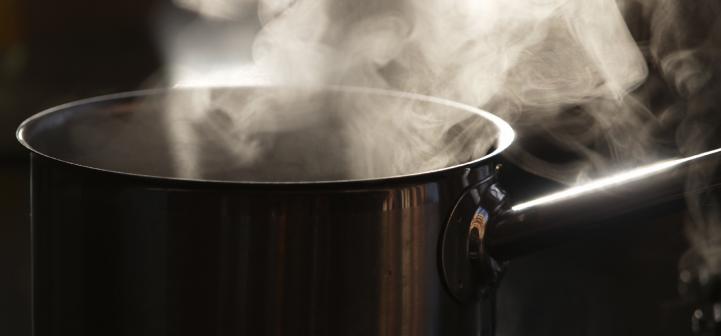
Evaporation is a process where liquid turns into a gas. When water gains heat energy it changes to a gas. An increase in temperature speeds up the rate of evaporation. Water evaporates when it is boiled.
How does water evaporate?
Water molecules move faster when heat is applied. The faster they move the easier it is for them to escape. When that happens, evaporation takes place. See first hand how Evaporation works the AquaTime Series on Evaporation.
How is evaporation related to the water cycle?
Evaporation is an essential phase of the water cycle. Heat from the sun makes water evaporate from the surface of oceans, seas and lakes. Even moisture from the soil and the human body evaporates. Evaporation of each of these depends on the temperature of the water surface and the temperature in the air. When water evaporates, heat is removed from the surface. That lowers the temperature of the surface.
Characteristics of air have an effect on how much water can evaporate. As water vapor in the atmosphere increases, the water vapor pressure also increases. The atmosphere is saturated when it reaches the vapor pressure maximum.
How does the wind affect evaporation?
Wind can help evaporation continue when the maximum vapor pressure has been reached. The air in blowing wind moves around and expands, creating more room for the vapors.
Contributor: Mona Dominguez, Auburn University

